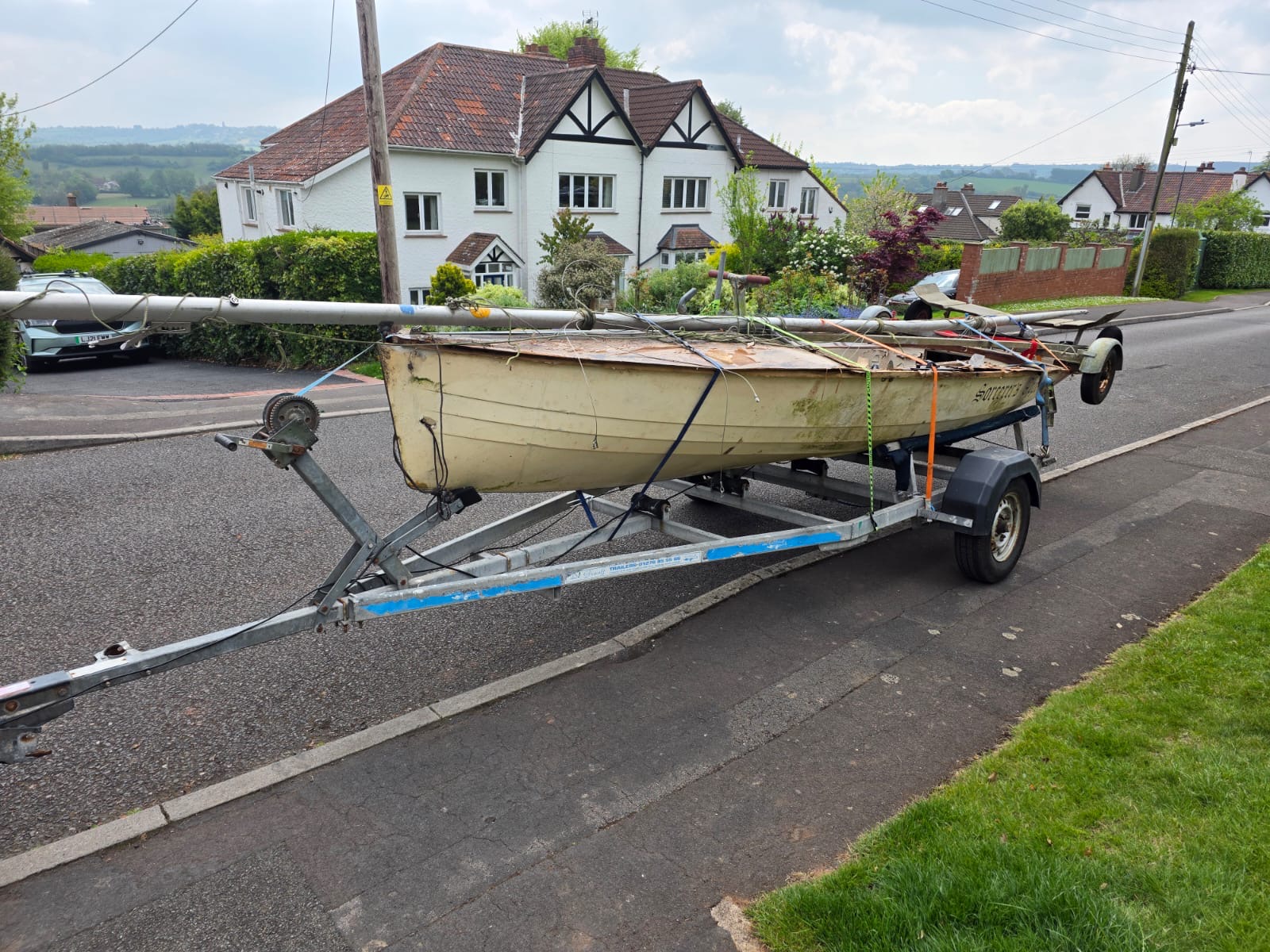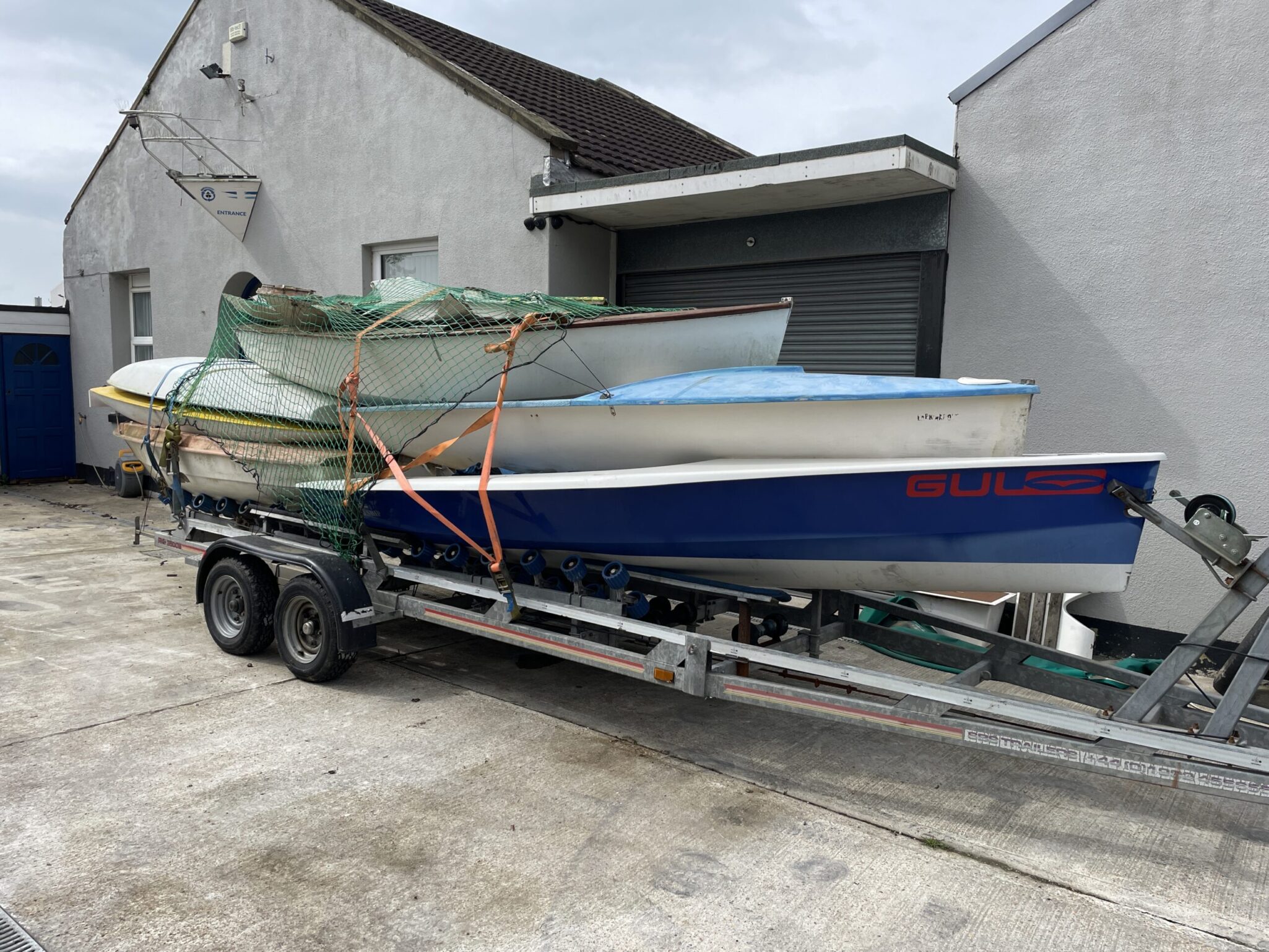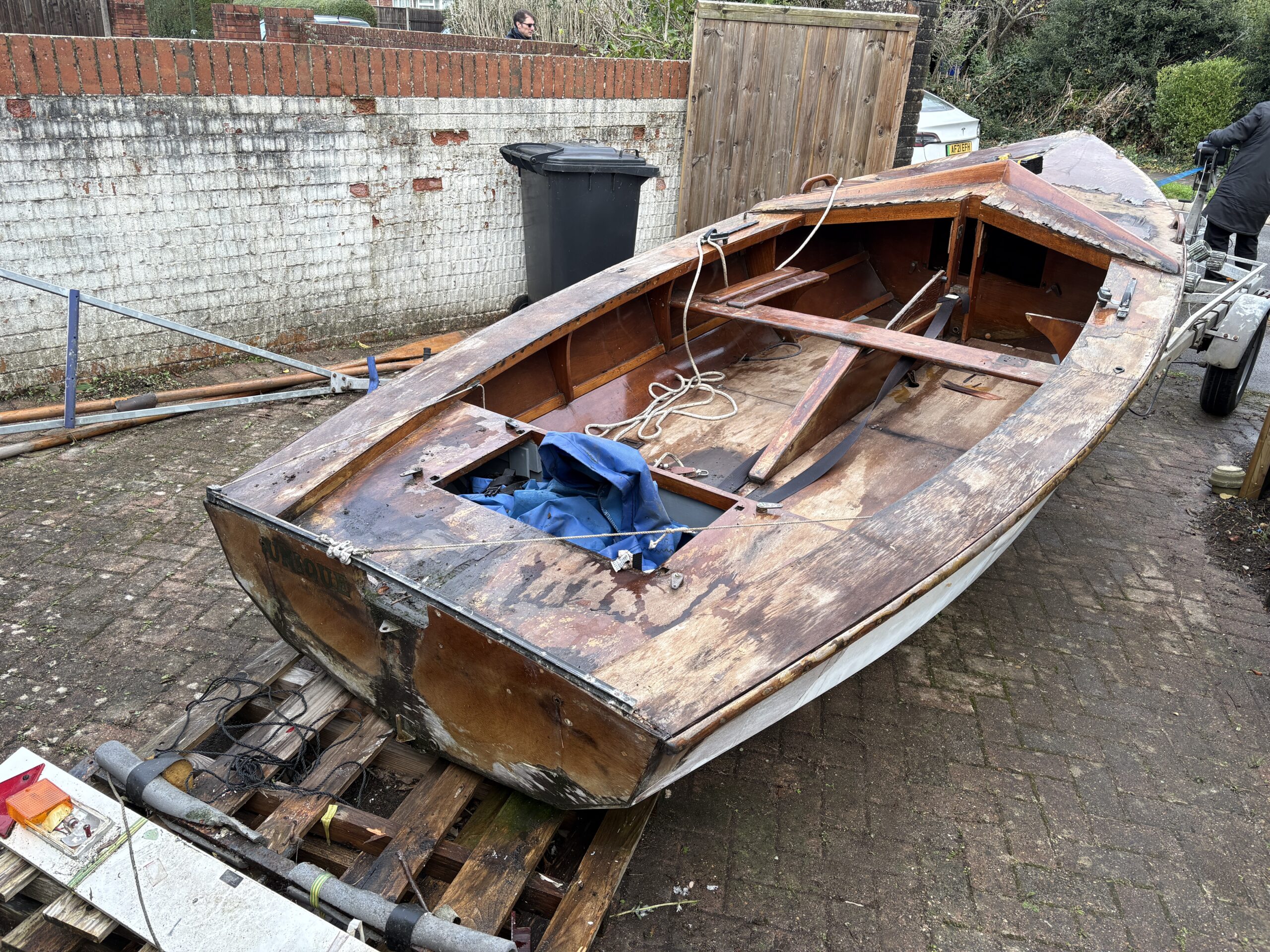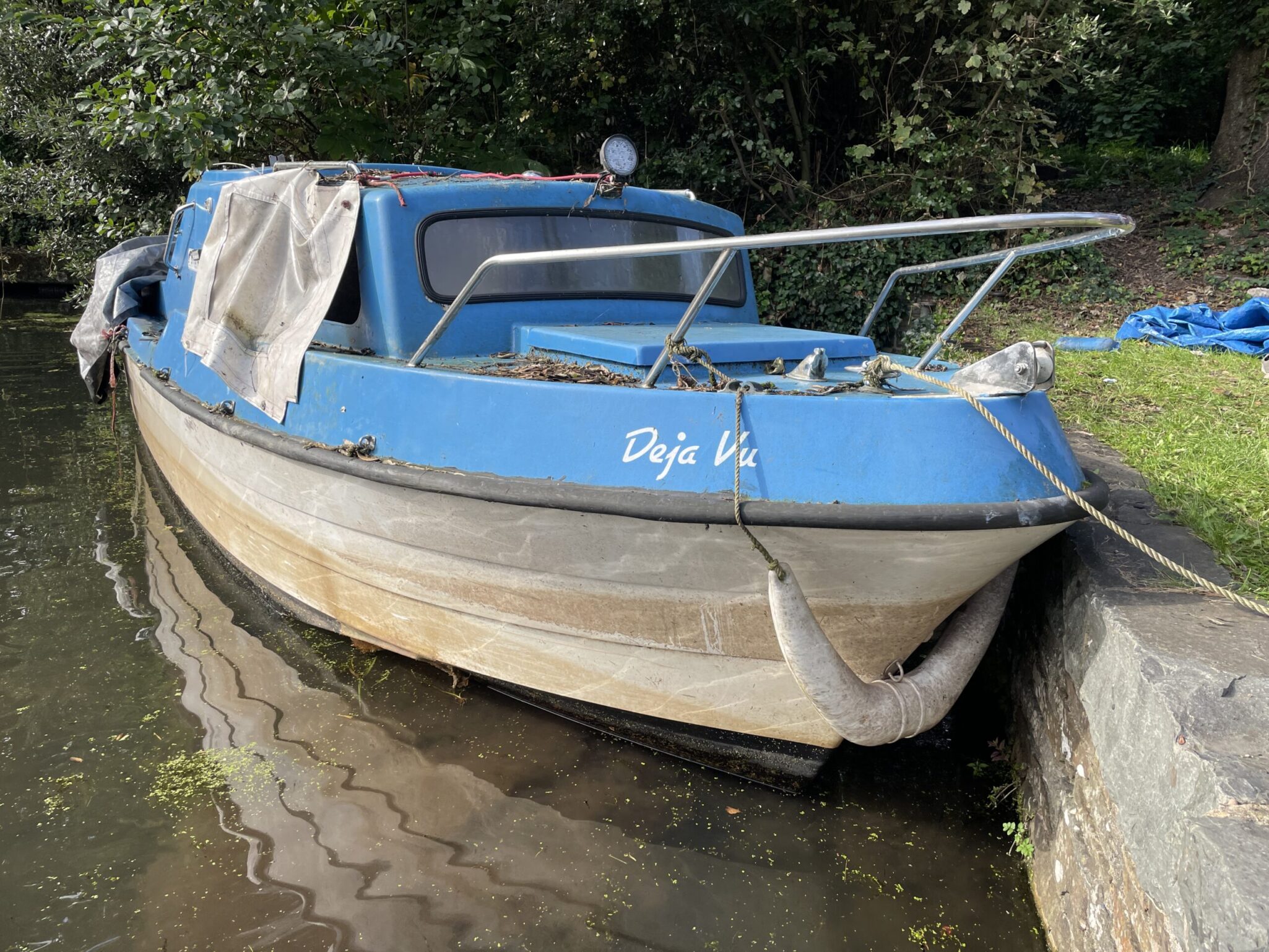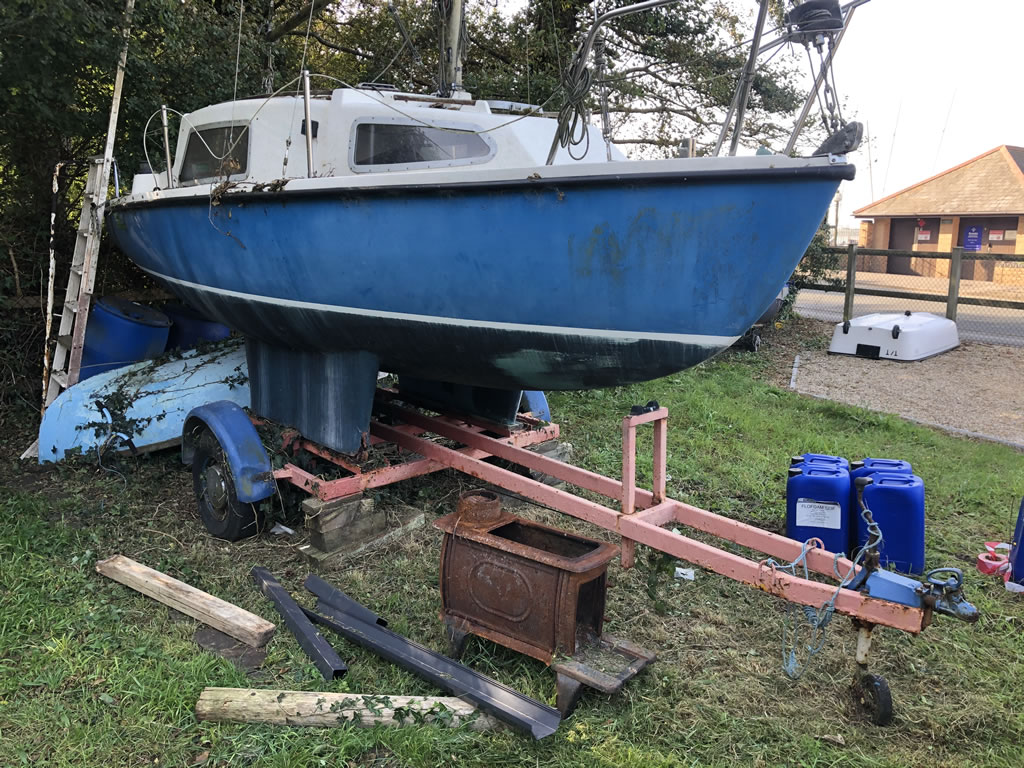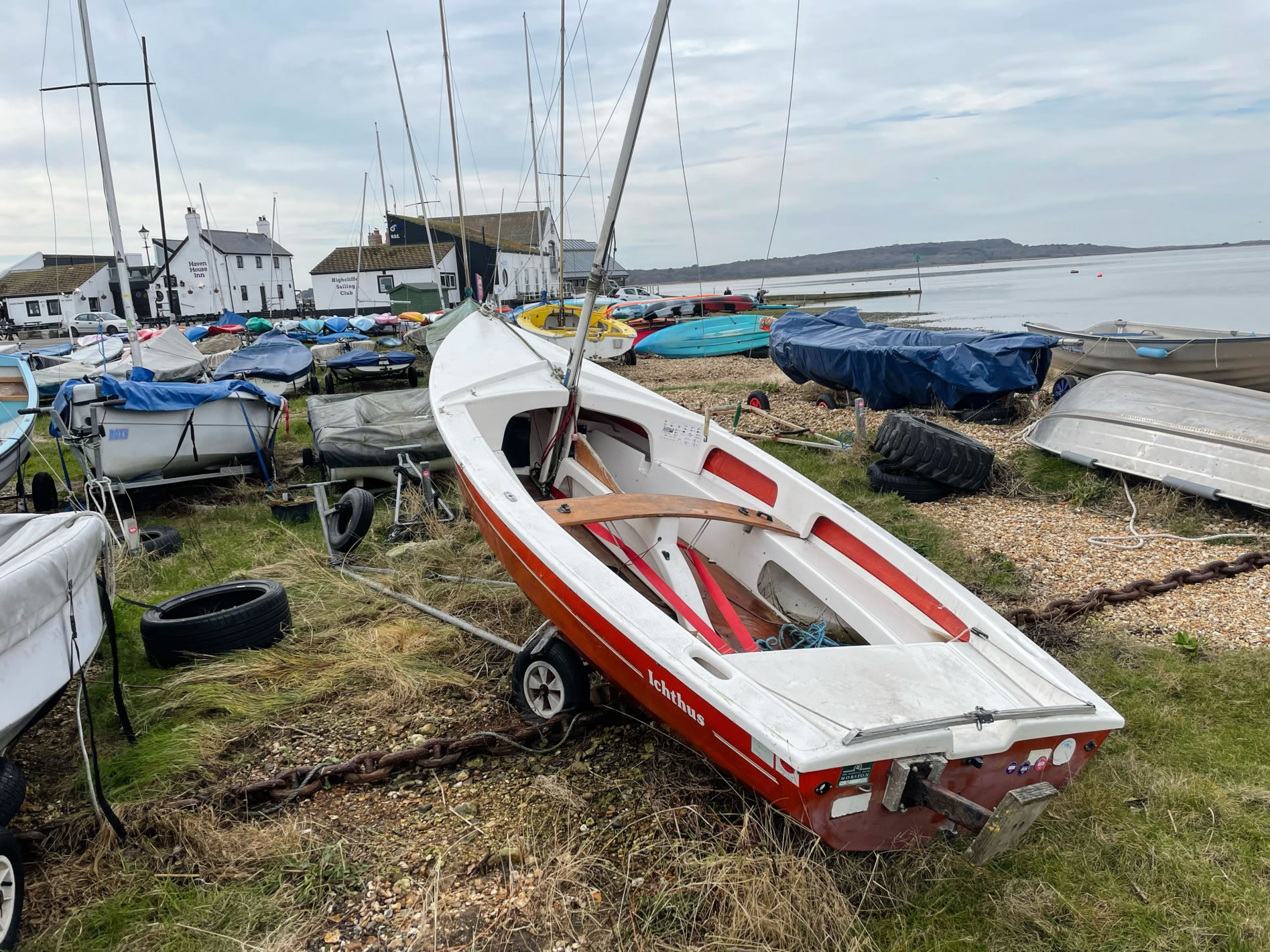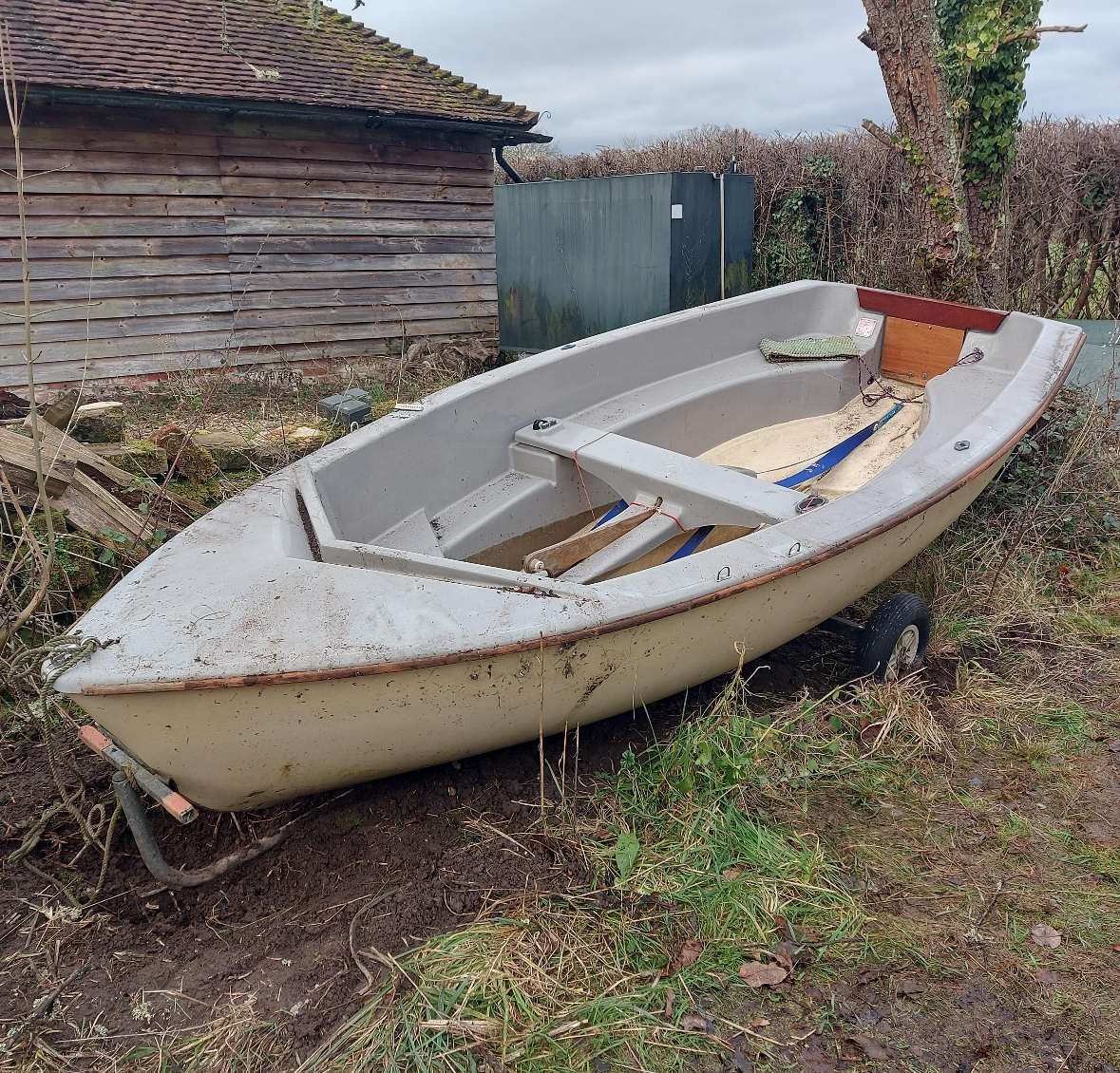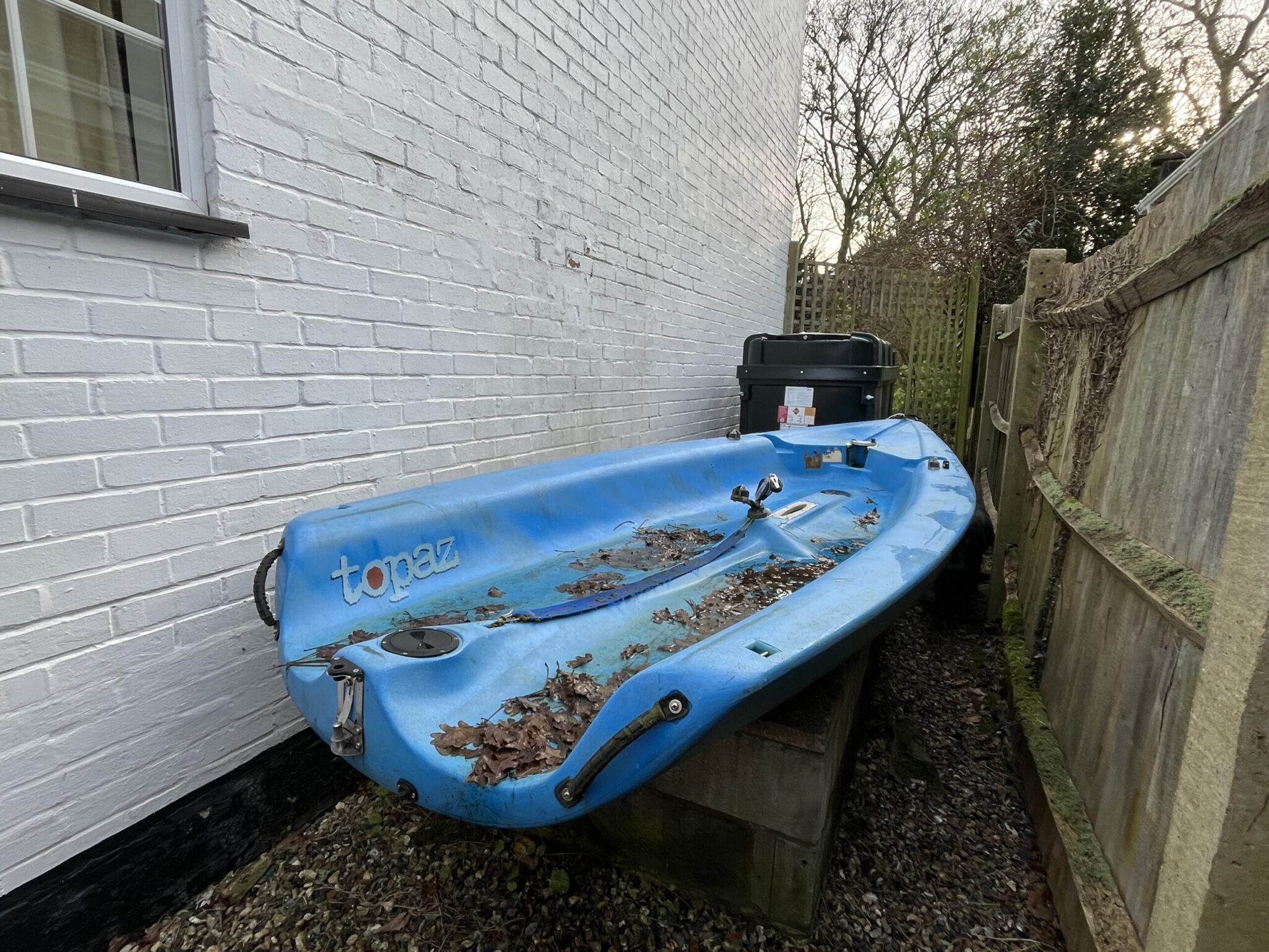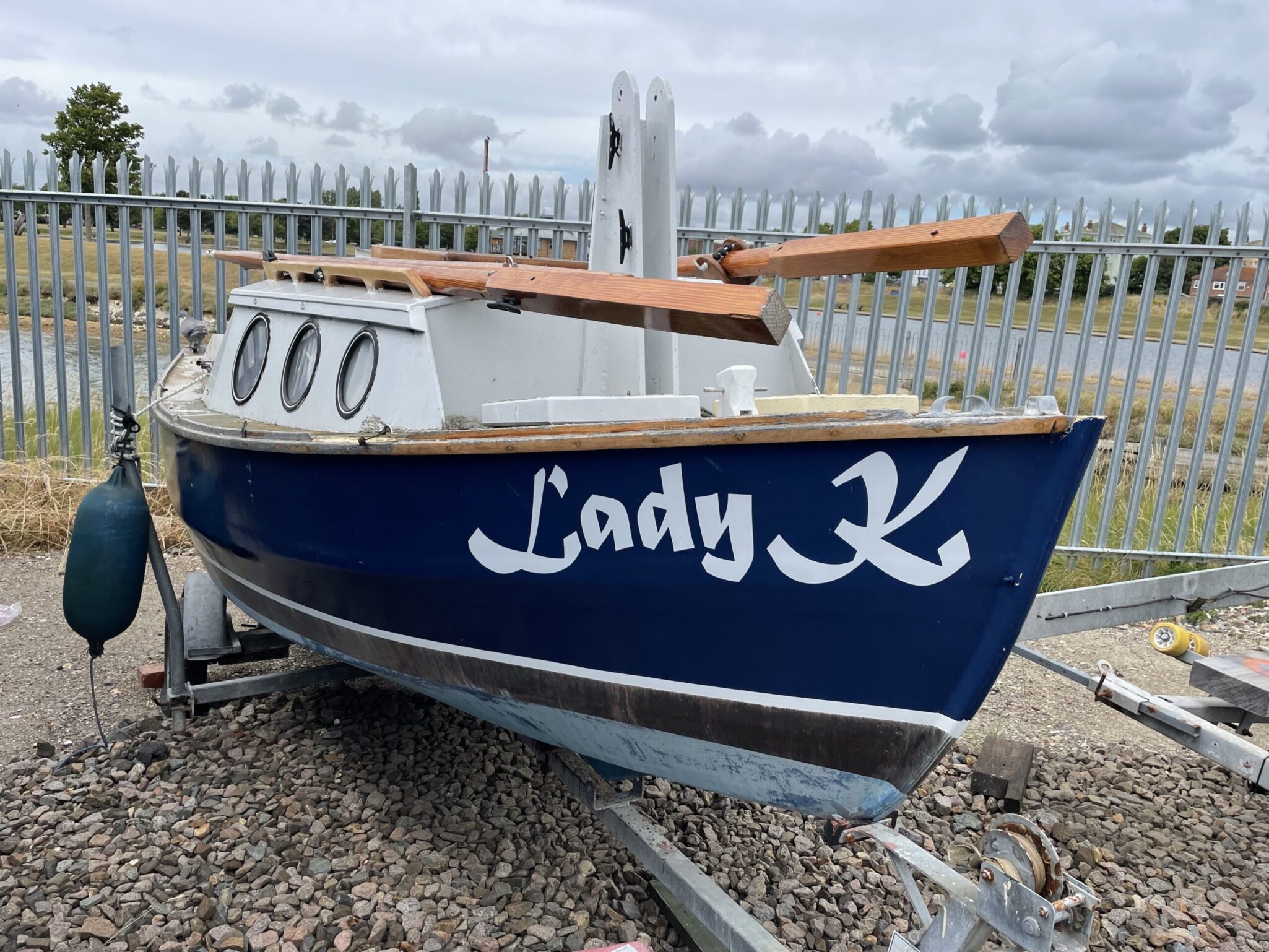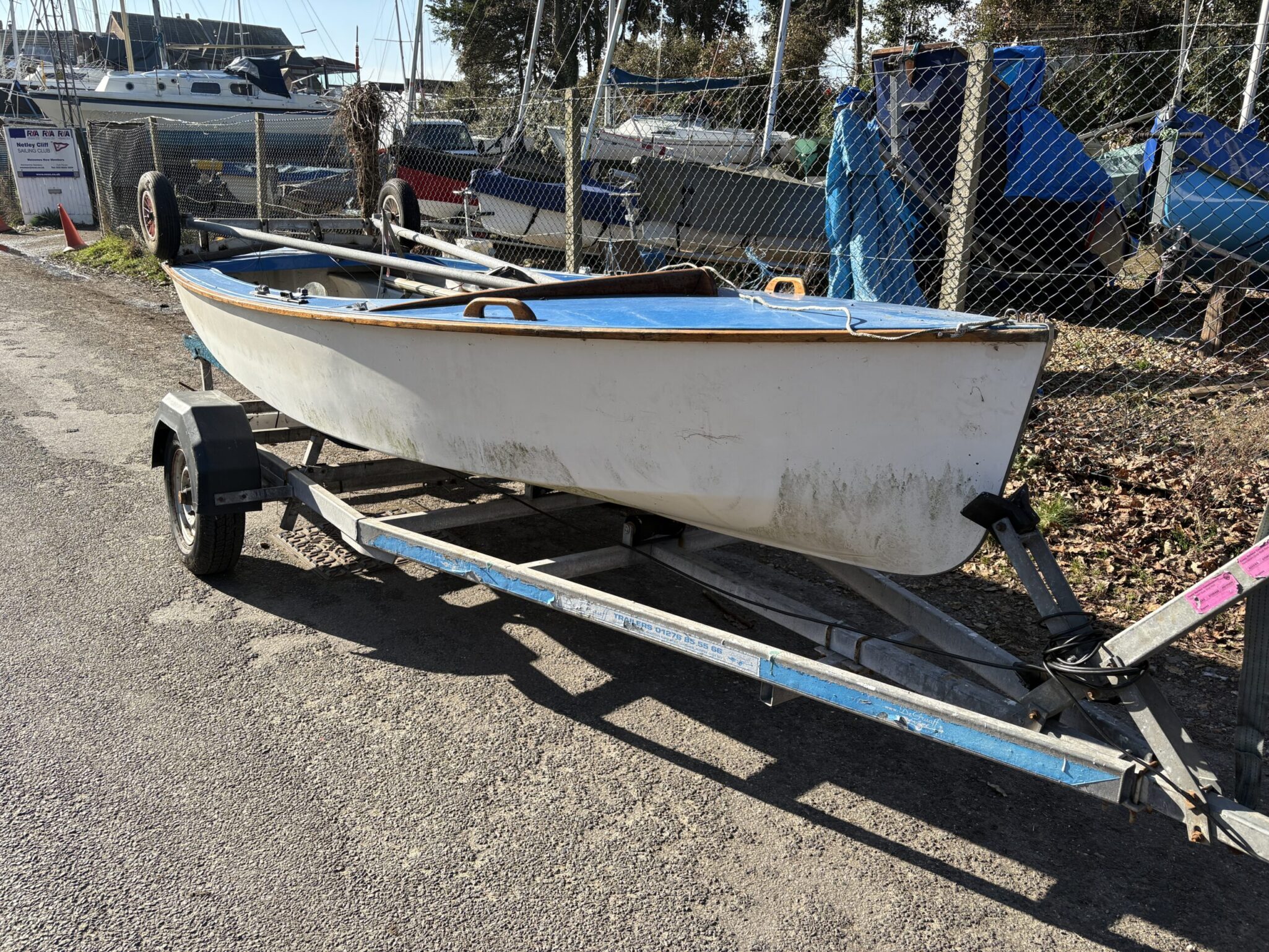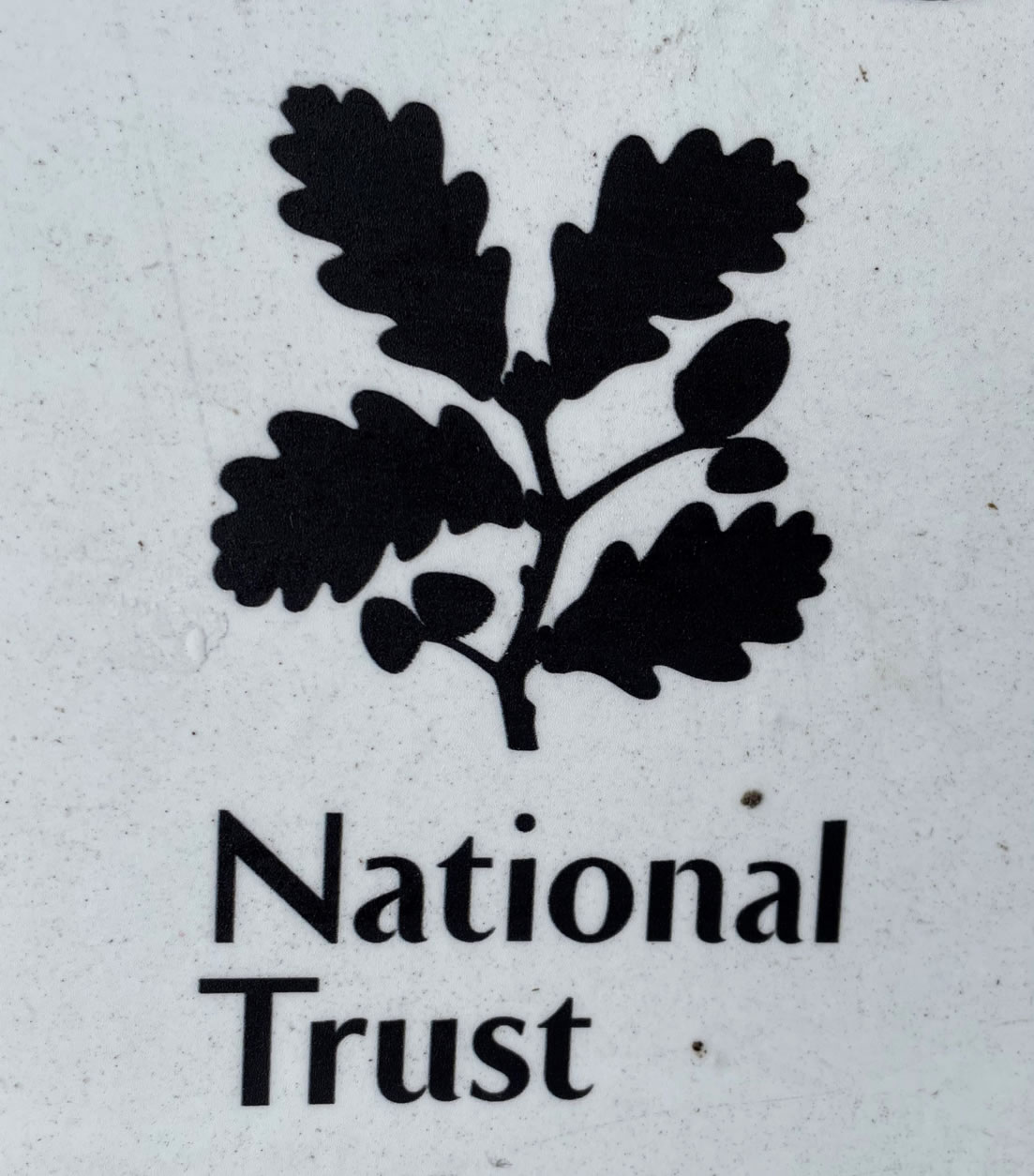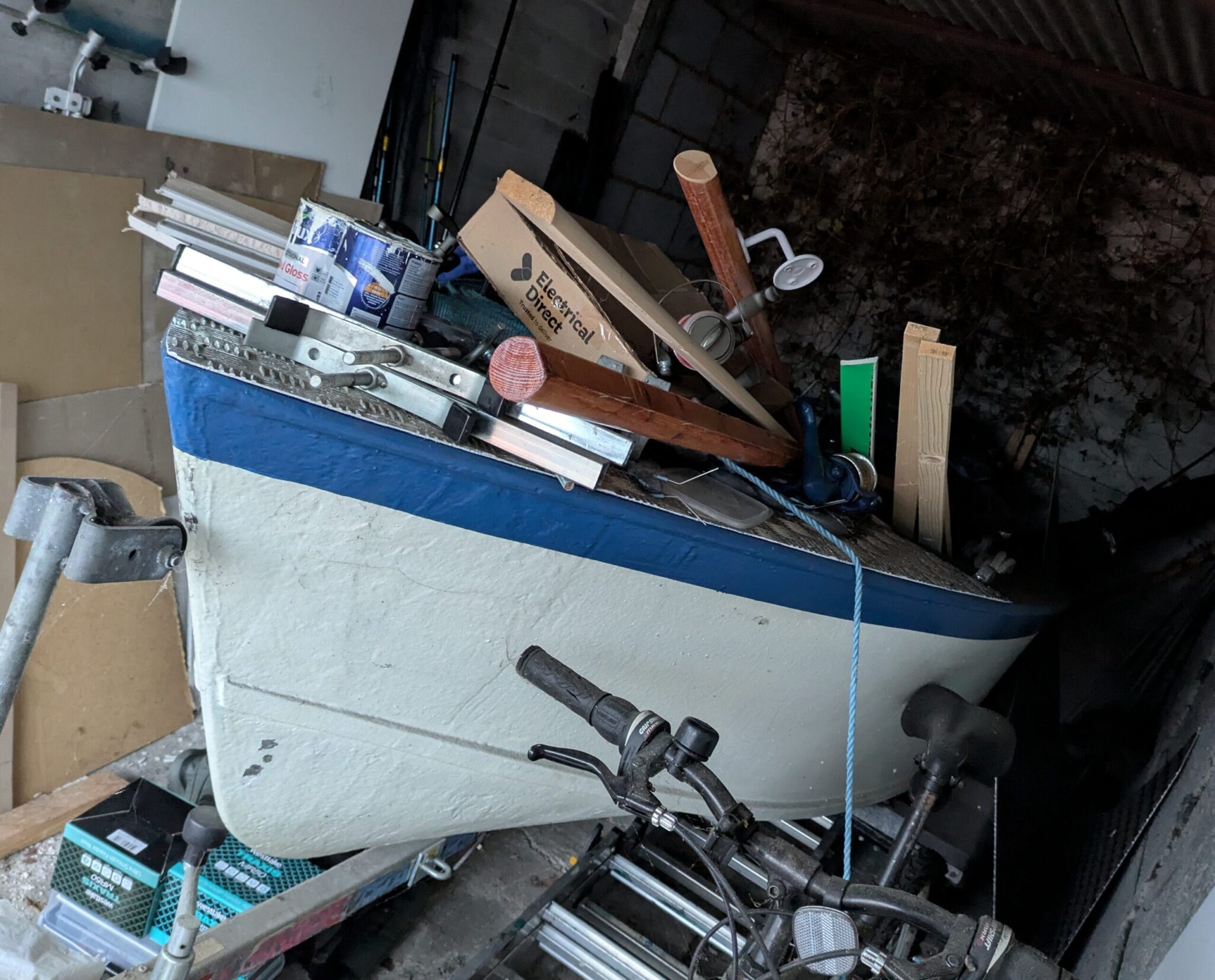We class a Small Boat as anything up to 17ft. This can be a yacht or a motorboat.
A dinghy we class as a small sailing vessel without an engine.
Deliver to us for a cheaper price.
If the boat has a trailer, please tell us! It can make the collection much easier and possibly cheaper for you. All small boats and dinghies will usually go on trailers.
Our method of transport is usually to winch the small boat/dinghy up onto a flat bed trailer.
If the boat is a small yacht we may require a lift on as they are more difficult to winch.
Boats can be brought to us by water as the scrapyard is at the top of Portsmouth Harbour. This option must be pre-arranged.
Small Boats and Dinghies can be a range of materials including GRP, Steel, Wood, Aluminium, Plastic, and Carbon Fibre.
The cost of lifting the boat onto transport is simply whatever the crane operator or boat yard charges us. We can often man handle or winch most boats onto trailer by hand. But anything with a keel may need a lift.
If we can winch a boat up onto a trailer ourselves, we will do. This is dependent on weight and size.
We need to know exactly where the yacht is located as it has a bearing on how we collect. We collect boats from in fields, gardens, marinas, boatyards, driveways, canals, rivers, beaches, harbours and inside buildings. Wherever your boat is, once we know the details, we can make a plan to collect.
Access is the biggest issue with small boats. They are often in back gardens or in places that are difficult to get a trailer close. We aim to establish potential difficulties before we set off so that we avoid wasted journeys.
Not usually a big issue for smaller scrap boats. Most smaller boats aren’t so heavy but it still helpful to know.
We need to know the weight of the boat so we can plan for craning the boat off of transport at one of our scrapyards.
We need to know the weight of the boat as we base the price on how much the boat weighs. Once the boat is broken down we have to pay by the tonne to dispose of the waste.
Flares incur an extra charge to dispose of as they are a difficult item to dispose of. If you want to remove the flares yourself before we deal with the boat your price to scrap will be cheaper.
If there is a valuable working engine in the boat we can often discount the price of disposal. Sometimes if the engines are really good we can offer to take a boat on for free. As we know that we can sell the engine to cover the cost of the scrap.
However, if the engine is a non-runner we need to add to the cost as there are extra costs to properly dispose of the engine.

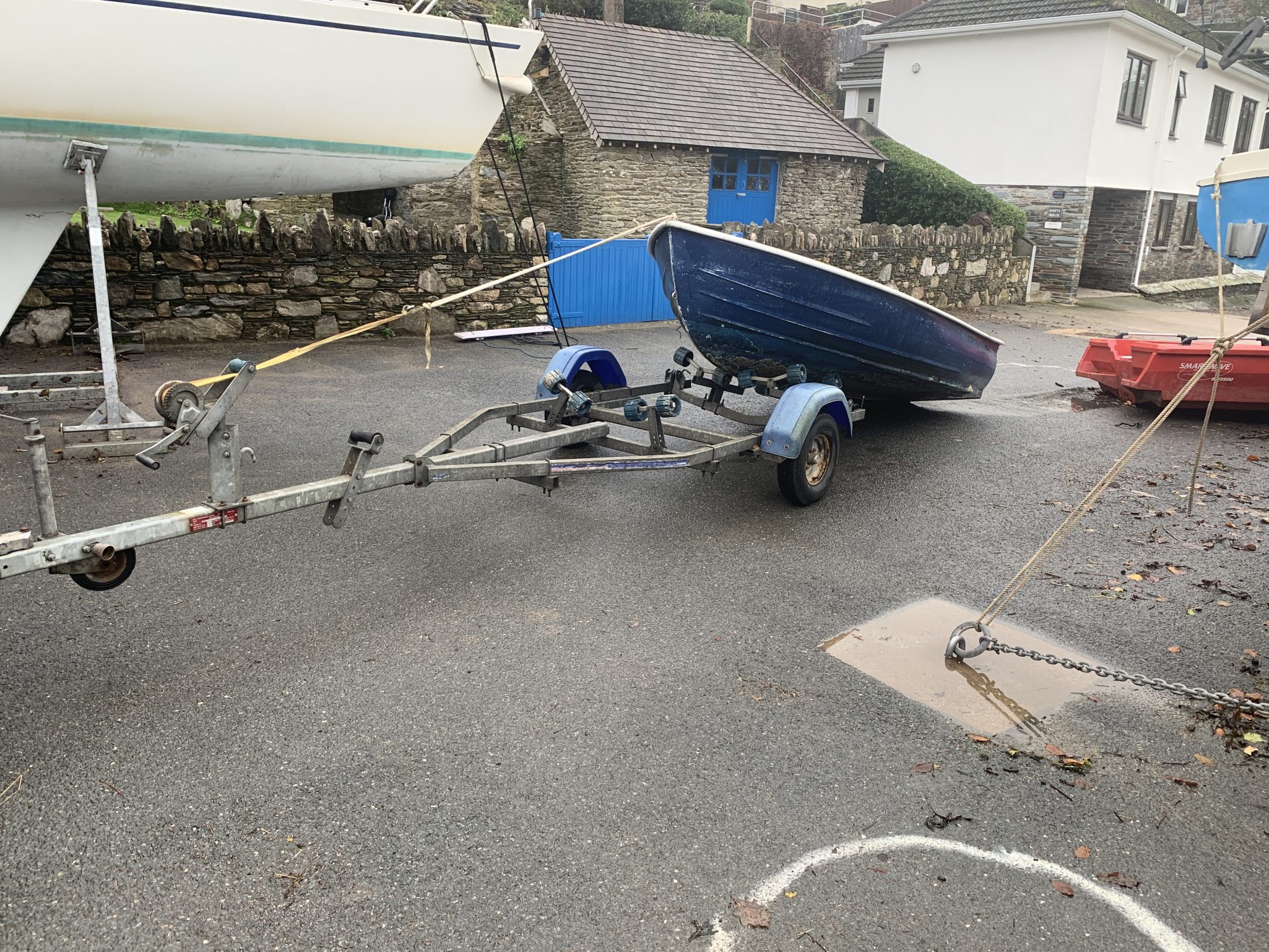
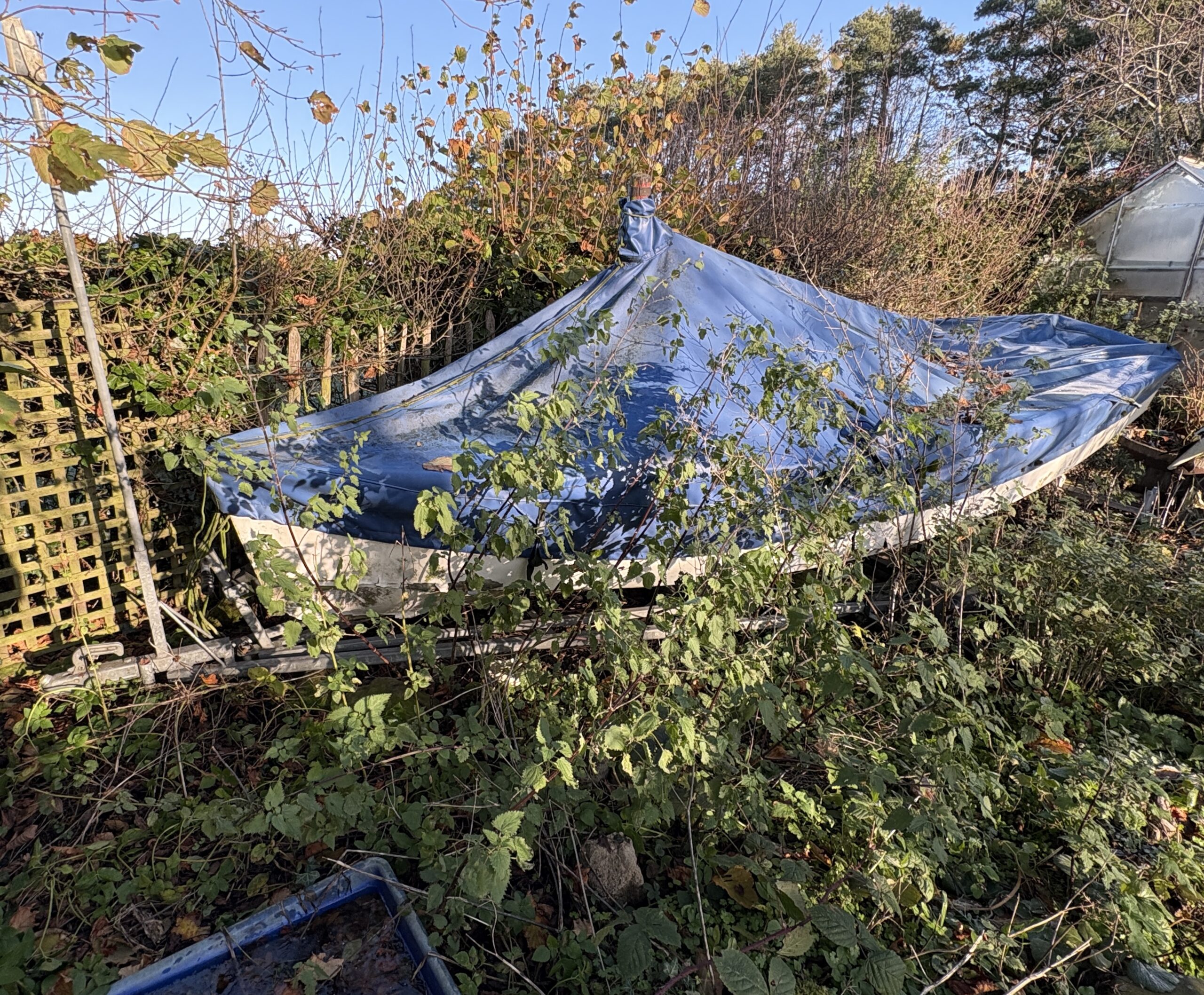
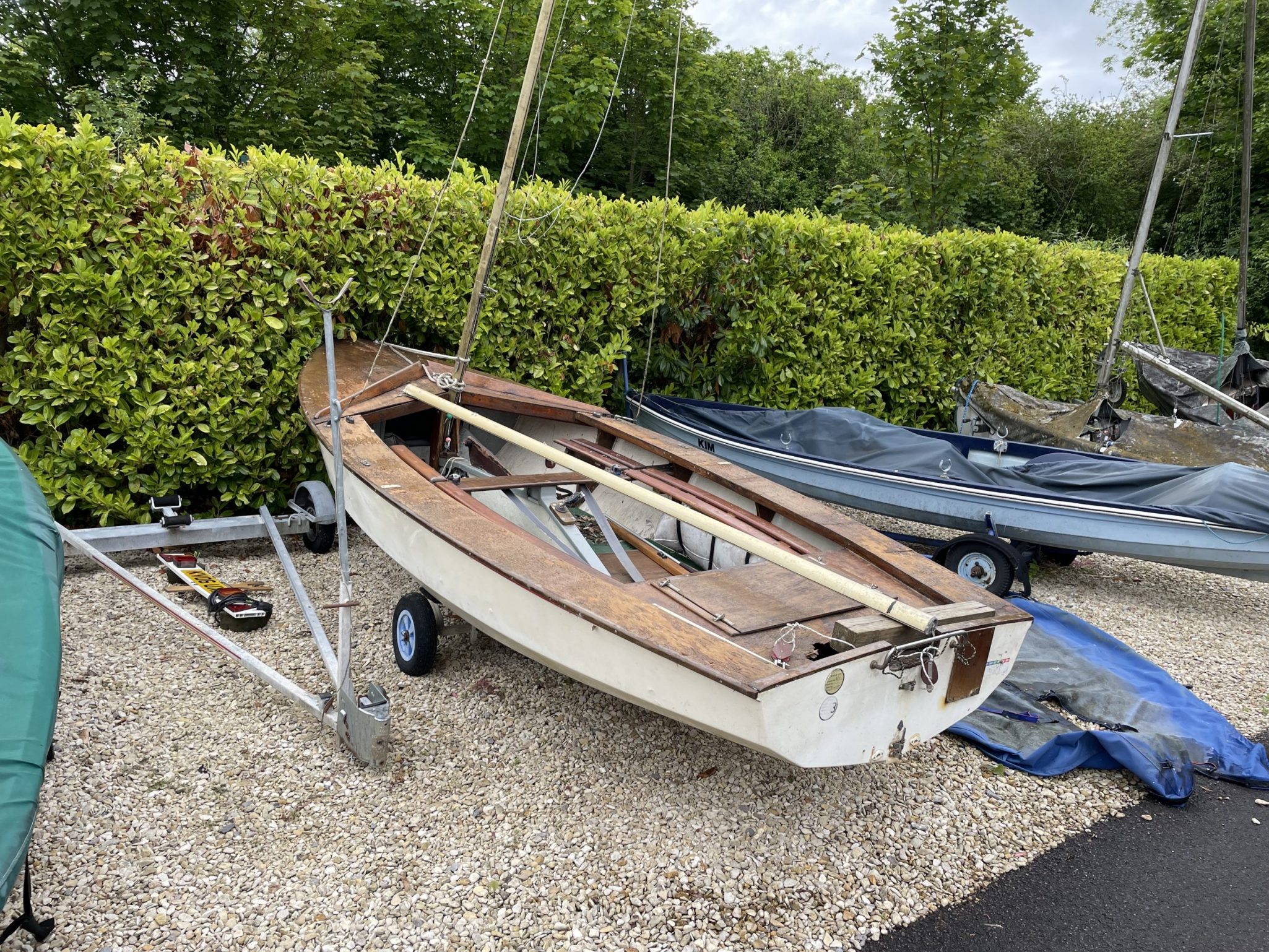

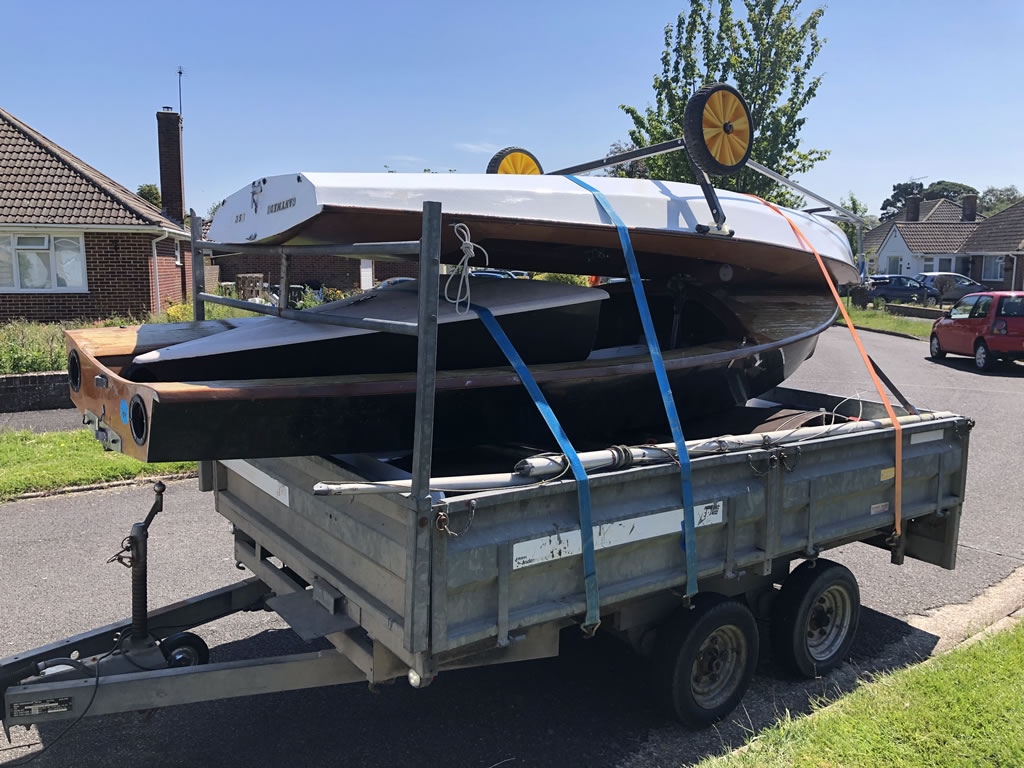

![Derelict Boat Disposal in Hampshire Garden [Video]](https://www.boatbreakers.com/wp-content/uploads/2022/09/Derelict-Boat-Disposal-in-Hampshire-Garden.jpg)

